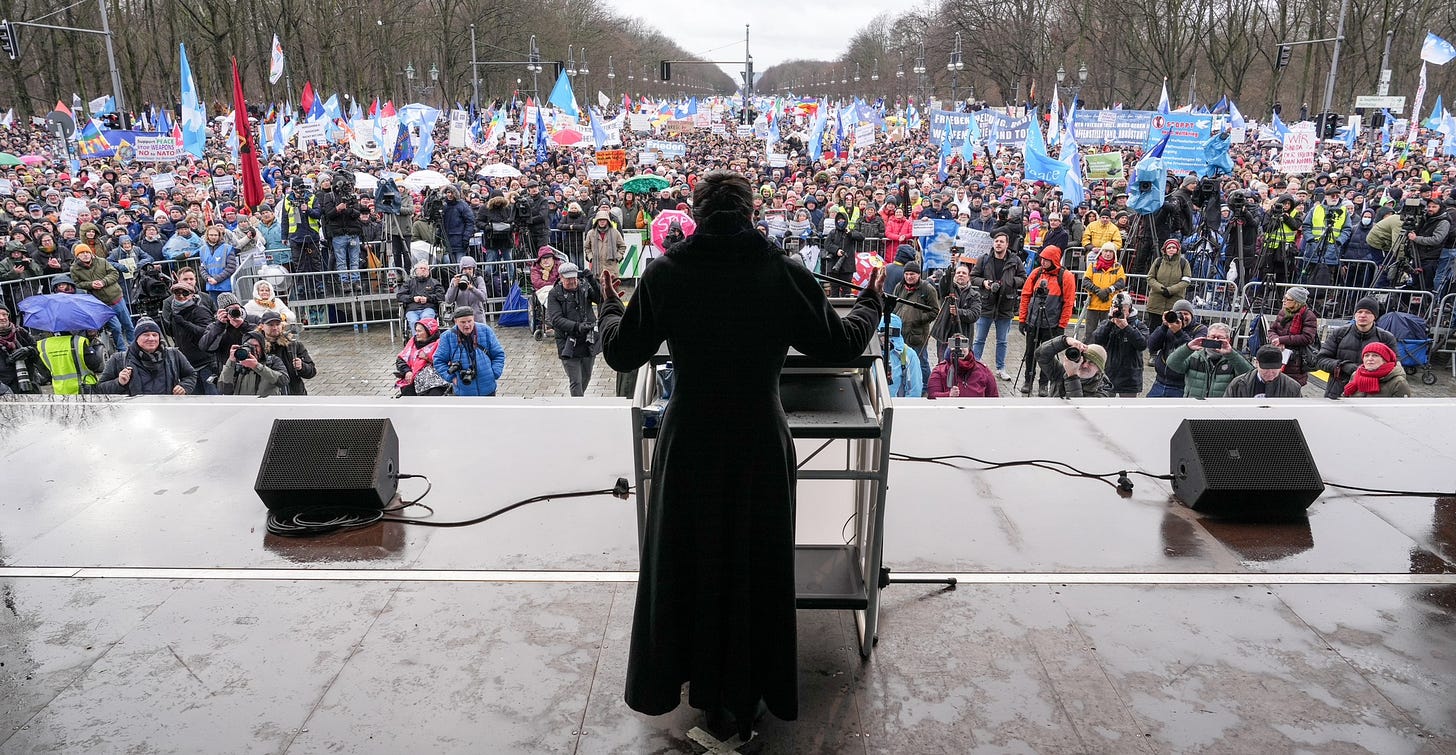In Germany, anti-NATO parties are polling a third of the vote

Amid the rise of the AfD in Germany, a new “culturally conservative,” economically left-wing party led by ex-Linke leader Sahra Wagenknecht has become the story of the moment. Wagenknecht, known for her right-wing stances on issues like immigration and climate change, has taken along with her some of Linke’s “most controversial” MPs for her upstart effort, which already polls around the mid-10s.
While alarms have been raised about the prospect of the party cooperating with the AfD, Wagenknecht herself has denied that her list, BSW, would forge deals with the far-right. This stance remains to be tested, but the first occasion could arise as soon as next year, when a slate of states in East Germany will hold their respective elections: Thuringia, Saxony, and Brandenburg.
Like the AfD, BSW is finding some of its strongest support here; in Thuringia, for example, the party already popped to first place, displacing an AfD which absent of BSW has been polling around 30%. Along with the AfD, the parties would take a combined 47% of the vote, which could be enough for a majority given the 5% threshold to enter parliament in Germany.
Compare that 47% to the 32% the AfD received on its own. It should be stressed that the two are different entities- but the rise of BSW could vastly expand the political space taken up by opponents of Germany’s foreign policy consensus.
Wagenknecht, like the AfD, is opposed to sanctions on Russia. And similarly, the new party will take an anti-NATO outlook, along with a skeptical approach towards the EU. Both positions are also held by Wagenknecht’s former party, Die Linke, which could still make it into parliament. But the last time the AfD and Linke polled around 30% combined was back in 2018.
According to an INSA poll, anti-NATO parties could take 34% of the vote if Linke, which could still make it back into parliament, is included. (Parties may still win proportional seats as long as they take at least 3 constituency seats.)
Cooperation between these parties would not necessarily be required in order to disrupt the country’s status quo. The higher they poll respectively, the more likely it is that they’re invited to join or support some governing arrangement. That seems much more likely to be the case for BSW or Linke, given the country’s historic red-lines around working with the AfD.
In any case, BSW’s cultural conservatism alone would shift the country’s political center-of-gravity in conjunction with the rise of other forces. At the moment, an empowered CDU, while still unlikely to work with either BSW or the AfD, has also shown signs of shifting to the right, with its latest leader Friedrich Merz embodying that outlook.
It still remains to be seen whether BSW’s momentum is lasting or merely a political flash, like so many other stories of upstart parties. The party will face its first test next year, in the 2024 EU vote, where the AfD is also hoping for a statement score.
And that election itself still has the potential to pose continent-wide disruption, as an increasingly emboldened far-right looks for gains in a host of countries.



